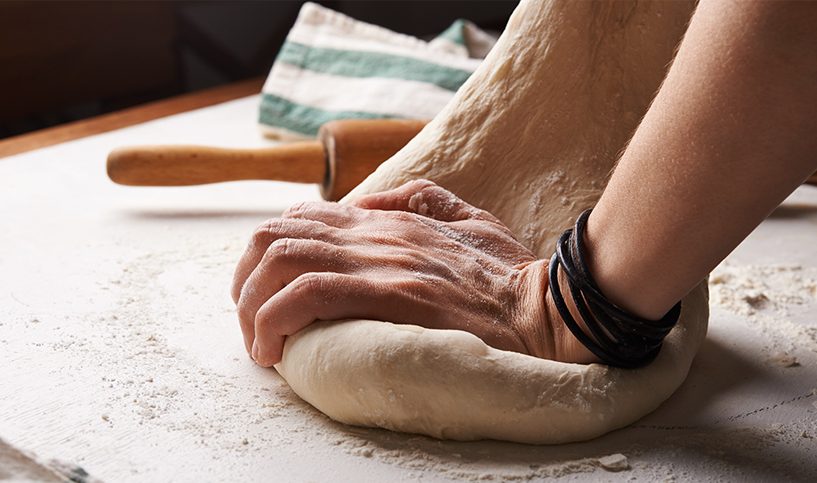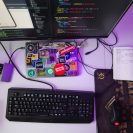Almost every crazy adventure in my life has started with the question: “How hard could it possibly be?” I apply this thought process to every pursuit I choose to chase, and that is how I found myself covered in flour and trying to guess if the yeast was still good or not when I decided to take on bread making.
I have no delusions about my culinary skills. I only cook because eating out every day is terrible for my wallet and waist. I understand the mechanics and have the basic skills, but for me, cooking is a necessity more than a passion. The only exception to this notion, however, is baking. It’s a magical world where art meets science, and the result is perfect pitas and fantastic focaccia.
I had just watched Paul Hollywood’s Bread, and was determined to master the basics. It took a few tries, but now I can whip up a batch of flour tortillas in under half an hour or a beautiful loaf of ciabatta. I am not bragging, because baking really isn’t that hard. Anyone can do it; in fact, humans have been doing it for millennia without any fancy equipment or gas ovens.
This is why baking bread really makes for the perfect weekend project! Just imagine waking up on Friday morning, making the dough. Then having a cup of coffee while you wait for it to proof. Then enjoying your heard-earned breakfast with some scrambled eggs with a side of veggies. But more than that, it is a very grounding activity. People who find meditating hard might find that stretching and pounding a mixture of flour, water and yeast a much more satisfying activity. If you do enjoy a bit of a brag, then showing up at your family’s next Friday breakfast with a delectable loaf of perfectly baked Brioche might just tickle your fancy.
It took me a couple of trials before I could take on bread baking without thinking too much about the process, so here are some of the tips that might help you learn faster than I did.
Find the right teacher
I was inspired by a TV show, but found more insight by reading blog posts and recipes posted online, but you might find it easier to learn from a class or by reading a book. Everyone has their own preferred style. Don’t work against yourself. Also, YouTube is your friend, use it!
Ingredients matter
It is true that the main ingredients for bread are cheap, but not all flour is great for all kinds of bread. And instant yeast is very different from the active variety. Using Extra Virgin Olive oil in your recipe instead of an old rancid oil can transform a basic focaccia into a religious experience.
Invest in good tools
A kitchen scale, measuring cups and a decent non-stick baking tray is more or less everything you need. These are available in most kitchen specialty stores and large supermarkets and are quite affordable. You can always buy a stand mixer but unless you are sure you are going to regularly use it, hand-kneading is just fine. You get bonus points for the hand and arm exercise, too.
Learn how your oven works
Not all ovens are the same, some run hotter than others and some have cold spots. Knowing your oven will help you get better results. This is a case of following your baker’s instinct, and if you have none of that stuff, learning how your oven actually works is a great place to start.
Make bread pudding instead of giving up
So, your bread was a major fail, it will happen. You could toss it out (which is a waste), feed it to the birds or use it to make bread pudding! There are a lot of recipes, and sugar makes everything better.
Leveling up skills
You will get better with practice. This is one of the few truths in life. Trust in the knowledge that any skill can only be gained by doing and not by wishing. Keep tweaking and trying different things until you get it right!
Featured image by Nadya Spetnitskaya on Unsplash.








